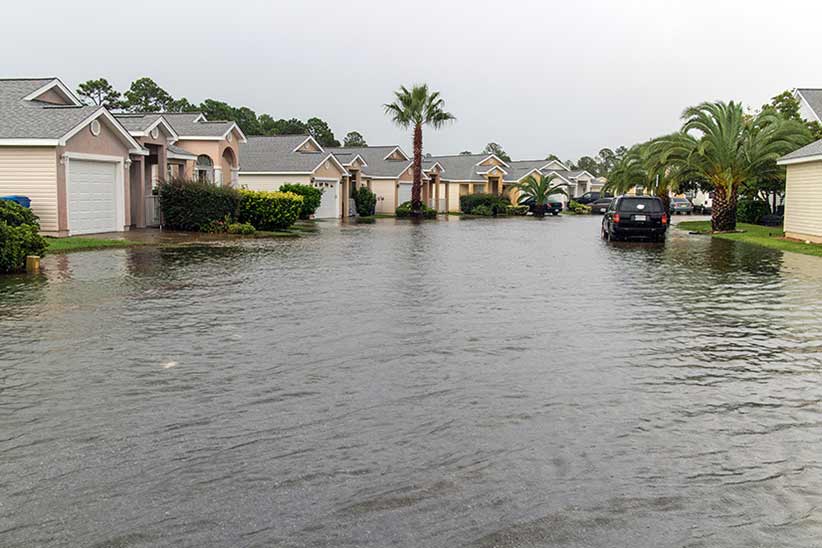
What will your insurance cover if your home or car were damaged in Hurricane Irma?
Now that the storm has passed, homeowners are looking at their insurance policies to see what will be covered and what will not. Homes in South Florida have damage ranging from lost roof shingles and broken windows to flooding by a storm surge. Cars that were left outside also suffered damage from debris, water or fallen trees during the high storm winds.
When should a claim be filed?
File a claim as soon as possible. Starting the process early is important even if you think initially you can personally cover the cost of the repairs. Repairs sometimes can be more complicated and costly than expected.
Read and review your entire homeowner’s insurance policy before calling to make a claim. Understand any endorsements and amendments. Create a detailed list and note everything lost or damaged. This includes all personal items as well. Keep a log of the brand name, model, and an accurate description. If you have photos, keep them with the list. Take photos of the damage and if possible, have a time and date stamp on each image.
When you are ready call your insurance company to make a claim, be honest in reporting the damage and keep in mind that you have a right under the Florida and Federal Constitutions to have an attorney report the claim and deal with the insurance company for you if you are unsure. The adjuster is a trained professional; you are not. A homeowner is not typically familiar with the way insurance policies are interpreted and how insurance companies value losses, the homeowner will always be at a severe disadvantage.
Is my car covered if it was damaged during the storm?
If your car suffered damage from Hurricane Irma, in most circumstances you will be covered under your car insurance if you have purchased comprehensive coverage. This is an optional coverage with a standard auto insurance policy. It is important to read the policy to be sure coverage applies.
What do I need to know about a hurricane deductible?
A deductible is an amount that you must pay before the insurance company pays out under your policy. Many times larger deductibles mean smaller premiums which is great when you are paying your monthly bill but can be expensive when you make a claim.
There are two kinds of deductibles for wind damage. The first is a hurricane deductible which only applies for hurricane wind. The second is for windstorm or wind/hail deductible, which would apply to any other kind of wind damage.
In Florida, the deductibles for hurricanes are in effect for any damage incurred during the 72 hour period after a hurricane warning has been issued. Each insurer and state applies the deductible differently so it is very important for homeowner’s to read and understand their policy.
According to the Insurance Information Institute:
“Percentage deductibles typically vary from 1 percent of a home’s insured value to 5 percent. In some coastal areas with high wind risk, hurricane deductibles may be higher. The amount that the homeowner will pay depends on the home’s insured value and the “trigger” selected by the insurance company, which determines under what circumstances the deductible applies. In some states, policyholders may have the option of paying a higher premium in return for a traditional dollar deductible, depending on how close to the shore they live. In some high-risk coastal areas, insurers may not give policyholders this option, making the percentage deductible mandatory.”
What about flood damage?
Homeowner’s insurance does not cover property damage caused by hurricanes or floods. Flood insurance will cover rising water, accumulation of water and inflow of tidal water, which includes storm surge. The National Flood Insurance Program (NFIP), which is run by the Federal Emergency Management Agency (FEMA), can provide maximum insurance coverage of $250,000 for the structure of the property and $100,000 for contents. Property and contents must be purchased separately, but may form part of the same policy. Additional coverage may be purchased from private insurers for excess flood insurance.
Flood insurance pay outs for each type of property covered:
Property: You can opt for replacement cost coverage (the cost to replace the damaged or lost property with new property, without regard to depreciation) if you’re insuring a single-family home that is your primary residence. Available coverage is at least 80% of the full replacement cost of the building (an amount that’s set in advance for your property) or the maximum available under the NFIP.
Contents: Flood insurance pays actual cash value.
What if I need to relocate or stay in a hotel after the storm? Will my insurance cover the cost?
Homeowner’s or rental insurance policies will generally cover the cost of additional living expenses that have been incurred due to the damage to your home.
I don’t have insurance on my property. Now what?
If you do not have homeowner’s or renters insurance, you may apply for assistance from FEMA. If you need to apply for assistance, click here.
If you have more questions regarding hurricane insurance claims, give us a call for a free consultation today at (954) 913-CASE (2273) or visit us at www.RaderLawGroup.com.
